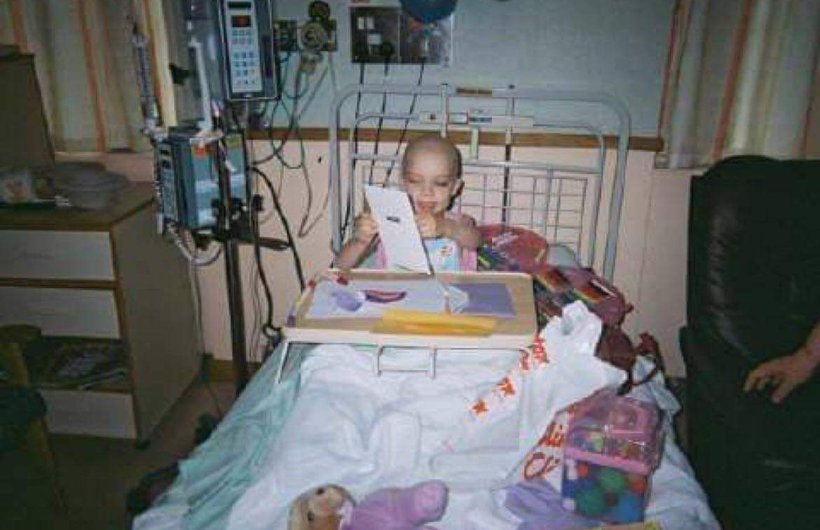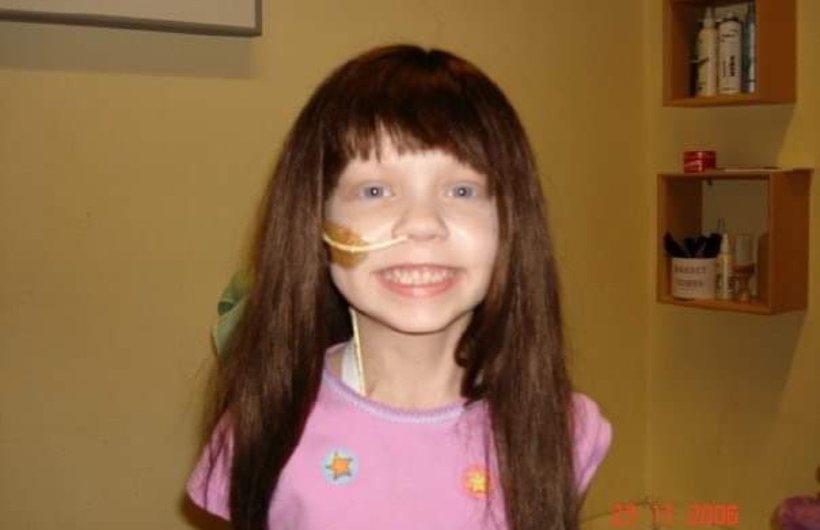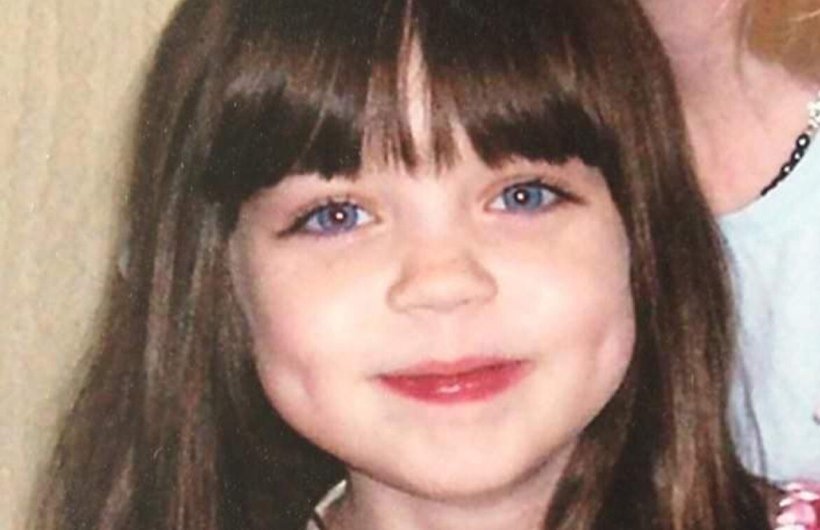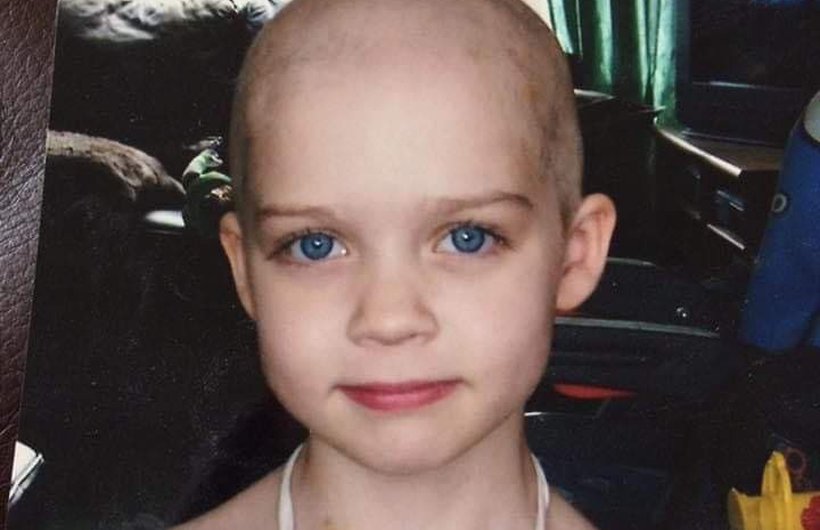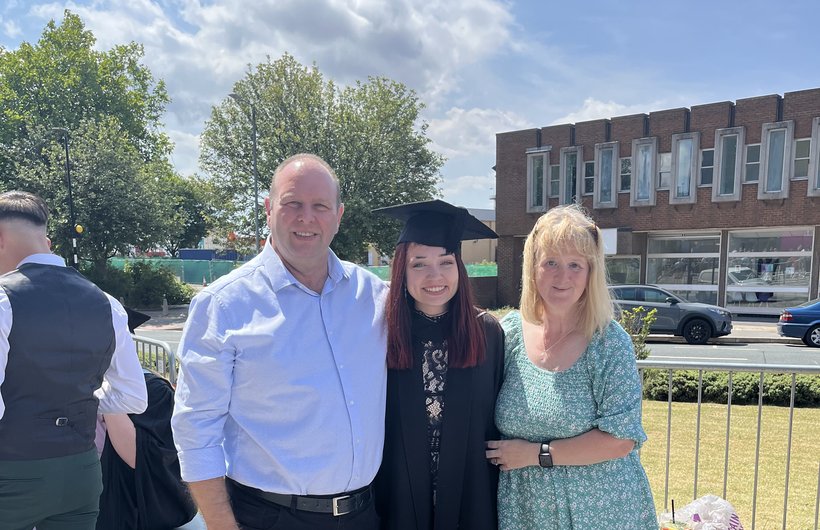

Charlotte
Charlotte is now post-treatment and has used what she went through as a child as motivation and inspiration to give back and support children going through what she did.
Charlotte was diagnosed with neuroblastoma in early 2006, aged just five years old. It was first noticed when she was at school and having pain in her legs.
“I was struggling to walk very far without it hurting so we went to the doctors and they sent me to A&E. They thought at first it was arthritis but, after a few scans, they realised what it was.”
“I don’t remember a lot of the treatment, apart from 22 days in a row having radiotherapy and having to lie still!
“What I really remember is that my parents were there throughout the whole of it. The way I see it is they’re just as brave as me, if not more so.”
Charlotte went into remission and finished treatment in 2007, just before her seventh birthday. Since then, as with many in post-treatment, she has experienced some late effects of the treatment she received.
“My growth has been stunted, and my feet didn’t grow properly at points. I have some hearing loss, and had to have hearing aids when I was growing up. I’ve been struggling with back issues recently and scans have shown a bone growth on my spine. They don’t know if that’s a mutation of the bone from treatment but that’s caused pressure on my nerves and back ache. On the positive side, my hair came back, and it’s thicker than it used to be!
“Sometimes it was difficult at school because I couldn’t hear things and I was often reluctant to wear my hearing aids. I used to sit near the front so I could see everything and hear more.”
Alongside the late effects that physically impact Charlotte, she has found that establishing friendships was often difficult due to the amount of time she was away from school and her fellow pupils.
“Friendships have been hard. Being away from everybody at times and trying to join in where I can meant I always struggled to form friendships.
“Sometimes people would notice these scars and would ask about them, but I’ve always been very open about it. If they want to know, I’m happy to explain because, if it helps them understand, then I’ll help.”
Charlotte went on to study children’s play learning and development at college and then studied for a degree in Early Childhood Studies at Hull University. Her graduation day was confirmation of how far she’d come and what Charlotte and her parents had been through to get there.
“Having that graduation day was realisation that I could do it and that I have done it. I can now go into what I want to do.
“My parents came and were very proud – it was a big thing for them. I know I went through all the treatment but I don’t remember much of it. My parents were hit hard being around it and seeing me go through it. It’s good for them to see how far I’ve come.
“It’s a relief for them now to see I have some issues but it’s nowhere near the severity of what I went through when I was little. They can have a breather now!”

“It feels amazing to see how well Charlotte is doing today and what a beautiful, well rounded, caring grown up she has become. Even though, in the main, as a family we were positive that her treatment would be successful, it was sometimes hard to let ourselves imagine what the next month would be like for her, let alone envisage our daughter’s life as an adult. Sometimes I look at her and feel how lucky we’ve all been that the treatment worked so well and we have this strong, capable woman in front of us now.”
Charlotte's Mum
“I’m still going for check ups at the late effects clinic in Birmingham, but I’m not there as often now as no other issues are cropping up.”
Charlotte worked at nurseries after university and last year she got a job working with a hospice charity and, unbeknownst to Charlotte, the charity had recently taken over the same children’s hospice that Charlotte was in after her treatment.
“I was invited for an interview and, when I got the address, it clicked!
“On my first day of working there, most of the staff who looked after me when I was little were still there – it was brilliant. There were so many friendly faces, and it was lovely to go back and see them.”
It is testament to Charlotte that she has used her experience as inspiration and motivation to now be in a position to provide similar care to what she received when she was younger. And working in the place where she was once looked after when she was going through treatment serves as a regular reminder of the odds that she overcame to be there.
“There were times when they weren’t sure if I’d make it to my sixth birthday. There were times when I didn’t know if I’d be able to work or travel but I have my independence back and I’m able to live a normal life.
“I bumped into one of the ladies who worked at the hospice when I was little and she said I told her at the time that I was going to come back and work there! That desire always been there, and it’s always determined what I wanted to do. This is where I want to be now.”
“To other families facing cancer, I would say don’t look at internet searches or worrying statistics, especially in the early stages of your child’s cancer journey. But do try to take in and believe in what your consultants, doctors and nurses are telling you, and be advised by others who have knowledge and experience. Solving Kids Cancer UK have been a great support to us by just being there, to have like-minded people, in similar situations, maybe at different stages is a great comfort. I would say my best advice would be to take inspiration from your child, Charlotte got us through some bad times with her bravery and resilience. Be kind to each other as a family, and also keep Hope in your heart, which was the best advice I was given by another consultant, Drs Simon Parke, early after diagnosis.”
Charlotte's Mum

